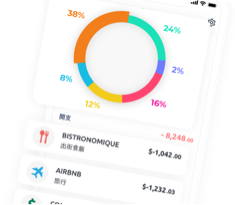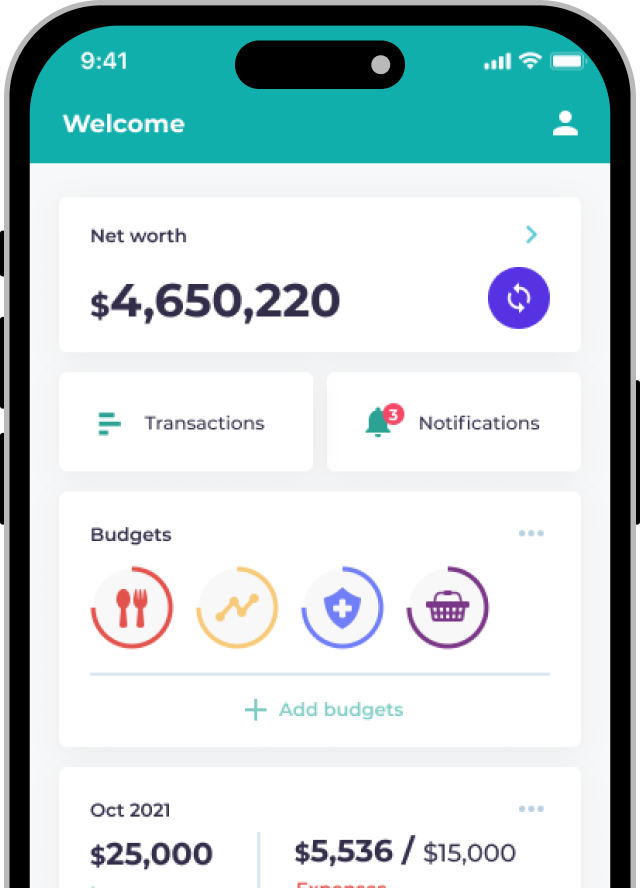🎁Virtual Bank Account Opening Rewards 2025
(Offers coming soon. Please check back later for the latest 2025 virtual bank account opening rewards.)
In 2019, the Hong Kong Monetary Authority (HKMA) issued eight virtual bank licenses, ushering in a new era of “neo-banking” in the city. As the name suggests, virtual banks operate without physical branches, offering retail banking services such as deposits, loans, credit card and debit card applications entirely through digital platforms like websites and mobile apps—without the need for human customer service interaction.
In 2024, the HKMA officially renamed “virtual banks” to Licensed Digital Banks. Industry stakeholders believe the term “virtual” carries a negative or intangible connotation and could be mistakenly associated with virtual assets or illegal activities. Renaming them as “Licensed Digital Banks” aims to alleviate public concern and better align with the global term “Digital Bank.” Institutions such as ZA Bank, Mox, and WeLab Bank have welcomed the change.
The eight Licensed Digital Banks are: livi bank, ZA Bank, Airstar Bank, WeLab Bank, Fusion Bank, MOX Bank, Ant Bank, and PAO Bank. Competition is intense, with each digital bank offering attractive account opening rewards, high-interest fixed and savings deposit promotions, spending rebates, and low-interest loans, delivering compelling digital banking services to Hong Kong residents.
According to a study published by Visa in October 2021, nearly half of Hong Kong consumers had opened accounts with digital banks (then still referred to as virtual banks). A separate 2023 survey by the Hong Kong Association of Banks revealed that 70% of respondents found virtual banks innovative and convenient, while 75% were aware that these banks are licensed and regulated by the HKMA, highlighting the growing public confidence in digital banking as a mainstream financial tool.
Tips for Choosing the Best Virtual Bank / Digital Bank
The products offered by virtual banks are fewer than those offered by traditional banks, and currently, they are focused on a few main services, each with their own selling points.
| Digital Bank | Savings | Loans | Debit/Credit Card | Investment | SME Services | Insurance |
| livi Bank | ✓ | ✓ | ✓ | ✗ | ✗ | ✗ |
| Mox Bank | ✓ | ✓ | ✓ | ✓ | ✗ | ✗ |
| ZA Bank | ✓ | ✓ | ✓ | ✓ | ✓ | ✓ |
| WeLab Bank | ✓ | ✓ | ✓ | ✗ | ✗ | ✗ |
| Ant Bank | ✓ | ✗ | ✗ | ✗ | ✗ | ✗ |
| Airstar Bank | ✓ | ✓ | ✓ | ✗ | ✓ | ✗ |
| Fusion Bank | ✓ | ✓ | ✓ | ✓ | ✗ | ✗ |
| PAO Bank | ✓ | ✗ | ✗ | ✗ | ✓ | ✗ |
Looking for a Full-Service Digital Bank?
ZA Bank, one of the earliest digital banks in Hong Kong, offers a wide range of services including high-yield savings accounts, debit cards, personal loans, investment services, credit card repayment features, and even insurance under the ZA Insure brand. With its extensive product lineup, ZA Bank remains the most developed and widely used digital bank in the city to date.
Want Generous Cashback When You Spend?
Cashback incentives were once a fierce battleground among digital banks. While the “cash-burning” days are mostly over, smart consumers can still enjoy good deals by keeping an eye on different promotions. Among them, ZA Card and Mox Credit are more aggressive in cashback rewards.
Notably, ZA Card rewards are issued instantly as ZA Coins, which users can convert into cash with just two taps in the mobile app. Mox Bank, on the other hand, deposits cashback into your account daily—no need to wait until the end of the month.
Want to Spend with Credit Limits?
In the early days, digital banks mostly offered debit cards only. Later, two banks introduced credit-based payment options. livi bank launched livi PayLater, adopting the popular “Buy Now, Pay Later” model that allowed instant installment payment plans—without applying for each installment like a credit card. However, this service was later discontinued.
Mox Bank introduced Mox Credit, a hybrid card that functions as both a debit and credit card. Similarly, ZA Bank launched the ZA Credit Visa Card following a comparable model.
Looking for a Loan?
When it comes to loans, Airstar Bank is one of the most aggressive players, offering ultra-low-interest personal loans and a balance transfer loan product.” WeLab Bank, backed by a well-known loan platform, joined the fray with installment loans that include bonus interest on savings. Mox Bank added a cash advance feature to Mox Credit, turning it into a flexible credit card option with lower fees.
To address complaints that advertised “lowest annual interest rates” are often unavailable, ZA Bank launched a rare guaranteed-rate loan plan, and even introduced a “Salary FastPass” product, offering early access to salary as a loan.
Interested in Investing?
While many digital banks offer higher interest rates on savings than traditional banks, few provide actual investment services. ZA Bank offers U.S. stock and fund trading, and features like “ZA One”, which allows users to subscribe to IPOs and invest in funds with expert assistance. WeLab Bank launched GoWealth, a robo-advisory platform that automatically invests in equity and bond funds with low fees. livi bank partnered with BOC Life to offer a savings insurance plan, a more conservative investment option.
Need to Pay Bills or Settle Credit Cards?
Currently, both ZA Bank and Mox Bank offer bill payment features. ZA Bank allows users to repay credit cards instantly via FPS. Mox Bank enables bill payments for credit cards, utilities, and various merchants—similar to the “PPS” system.
ZA Bank also introduced the “Bill Master”, a credit card installment feature that consolidates bills from different banks into one easy repayment plan, with terms up to 72 months. It’s a user-friendly option that also acts like a balance transfer loan.
Shopping for Insurance?
ZA Bank customers can purchase a variety of policies via the app, including critical illness, cancer, heart disease, and retirement plans—all under the ZA Insure brand. In contrast, livi bank currently only offers a short-term savings insurance plan via BOC Life.
Want to Open an SME Account?
For new SMEs, opening a business account at a traditional bank can be difficult. PAO Bank was the first digital bank in Hong Kong to offer business accounts, followed by Airstar Bank, ZA Bank, and livi bank. The advantages of digital SME accounts include fully online onboarding, streamlined processes, and in some cases, better deposit and loan rates than personal accounts.
How to Deposit Money into a Digital Bank Account?
Depositing money into a digital bank account is a straightforward process. There are three ways to accomplish this:
- Faster Payment System (FPS): Once you have opened a digital bank account and registered for FPS, you can transfer funds to your virtual bank account from your traditional bank account by entering your email or phone number.
- Electronic Direct Debit Authorization (eDDA): After linking your digital bank account with your traditional bank account, you can directly withdraw funds from your traditional bank account through the digital bank’s mobile app interface.
- Transfer via account number: This is the most traditional way of transferring money, where you input the recipient’s bank account number and transfer the money.
eDDA is the most user-friendly of these three methods, as it requires only a one-time linking of your virtual and traditional bank accounts. Then, you can transfer funds with just one click through the digital bank’s mobile app.
Who are the 8 Digital Banking License Holders?
| Virtual banks | Shareholders |
| livi Bank | Bank of China, Jardine Matheson Group, Jingdong Digits Technology |
| Mox Bank | Standard Chartered, HKT, PCCW, Ctrip |
| ZA Bank | Zhong An Insurance, Sinolink Worldwide Holdings |
| WeLab Bank | Welend, Alibaba, TOM Group |
| Ant Bank | Ant Financial |
| Airstar Bank | Xiaomi Corporation, AMTD Group |
| Fusion Bank | Tencent, ICBC, Hillhouse Capital |
| Ping An OneConnect Bank | Ping An Insurance |
Virtual banks vs. Traditional banks: Pros & Cons
As the banking industry shifts towards virtual platforms, the debate over the advantages and disadvantages of virtual banks compared to traditional banks becomes more prominent. Virtual banks, without physical branches, enjoy cost advantages in terms of rent and manpower, and can provide more tailored banking services to enhance user experience.
Advantages of Virtual Banks:
- 24-hour mobile banking: Virtual banks allow customers to access banking services through their mobile phones at any time. They can even remotely open accounts by scanning their ID cards or uploading selfies.
- Low fees: Virtual banks do not set minimum deposit thresholds or charge low account balance fees, benefiting small depositors without minimum deposit thresholds or low account balance fees.
- Increased market competition: Virtual banks offer more incentives to attract depositors, such as canceling low balance fees, increasing deposit interest rates, and credit card spending rebates.
- Promoting technological development: Virtual banks are expected to promote the development of financial services such as mobile banking, virtual credit cards, cross-border payments, and virtual insurance.
- Connecting with traditional banks: Virtual banks can connect with traditional banks through real-time transfers, complementing each other.
Disadvantages of Virtual Banks
However, virtual banks also have some drawbacks that make it challenging to replace traditional banks.
- No physical branches: Although online banking has been mainstream, many customers still prefer to use branch services such as deposits and withdrawals. Virtual banks are inconvenient for elderly customers who are not adept at using technology.
- Fewer choices of product: Most virtual banks currently only offer deposit, personal loan, and payment services and do not provide comprehensive retail banking services like traditional banks that cover investment, mortgage, and insurance services.
- Less personalized service: Traditional banks’ relationship managers understand customer needs through direct communication, while virtual banks rely on customers to complete most services through online systems. This limits the ability to understand customer needs and provide tailored services, which is a significant drawback.
In fact, traditional banks can offer a similar banking experience to virtual banks by actively digitizing their services, and many have already started doing so. For example, HSBC’s PayMe and Citibank’s inMotion are mature digital banking products covering many features and digital experiences that virtual banks do. In response to virtual banks, traditional banks such as HSBC, Citibank, Standard Chartered Bank, Hang Seng Bank, and Dah Sing Bank have canceled various service charges, including low balance fees.
Mobile stock or fund trading platforms like Futu, SoFi HK, and HSBC FlexInvest have already blossomed in the investment field. Even if virtual banks introduce investment services late, they may not significantly impact the market.
Virtual banks have also succeeded abroad. For instance, Monzo was founded in the UK in 2015 and soon became the most famous virtual bank in the world. It features automatic accounting and comprehensive data analysis, among others. In conclusion, virtual banks offer several advantages, but traditional banks still hold an important place in the banking industry due to their extensive range of services and personalized customer service.
Visa Survey: Half of Hong Kong Residents Have Opened Virtual Bank Accounts
According to a Visa survey conducted in July 2021, nearly half of the Hong Kong respondents reported having opened a virtual bank account. The main reasons for opening such accounts included account opening rewards (58%), high deposit interest rates (55%), and a more convenient account opening process (36%).
The awareness of virtual banking among Hong Kong people has also increased from 75% in 2020 to 86% in 2021, with ZA Bank, Ant Bank, and Mox being the most popular. However, 34% of respondents believed that virtual bank accounts are more likely to be hacked, and 31% were concerned about fraud or unauthorized transactions. 80% of the respondents stated they would still use traditional banks as their primary bank accounts. Overall, 61% of Hong Kong residents feel secure when using mobile payments, compared to 28% in 2020.
What Protections are in Place for Customers of Virtual Banks in Hong Kong?
Like traditional banks, virtual banks are regulated by the Hong Kong Monetary Authority and participate in deposit protection schemes. In the event of bank failure, customers are eligible for compensation of up to HK$500,000.
Although virtual banks primarily operate online, they are still required to have physical offices in Hong Kong. Therefore, customers can still access live customer service when they encounter queries or complaints that cannot be resolved online.
In addition, under the Hong Kong Monetary Authority’s strict supervision, virtual banks have established a strong security infrastructure. Biometric authentication and encrypted data transmission are standard practices. Virtual banks in Hong Kong offer further safeguards for their customers. Notably, Mox Bank and WeLab Bank’s debit cards eschew displaying card numbers or CVV security codes, while ZA Bank and Mox Bank have introduced a one-click lock card functionality to mitigate the risk of debit card theft.
FAQ About Virtual Banks in Hong Kong
According to the definition by the Hong Kong Monetary Authority, a virtual bank is a bank that primarily offers retail banking services through the internet or other electronic channels instead of physical branches. The HKMA believes virtual banks can promote fintech and innovation in Hong Kong and provide customers with new experiences.
Licensed virtual banks in Hong Kong include ZA Bank, Airstar Bank, MOX Bank, livi bank, WeLab Bank, Ant Bank, PAO Bank, and Fusion Bank.
The eligibility criteria for opening a virtual bank account vary slightly depending on each bank but mainly require the following:
– Being at least 18 years old
– Holding a valid Hong Kong identity card
– Having a Hong Kong mobile number for receiving SMS
– Having a valid Hong Kong residential address
Deposits to virtual bank accounts can mainly be made through Faster Payment System (FPS), electronic Direct Debit Authorization (eDDA), and account number transfer.
Some virtual banks allow customers can withdraw cash through ATMs. Otherwise, customers have to transfer money to another bank account to withdraw cash.
Like traditional retail banks, all virtual banks participate in Deposit Protection Scheme, and depositors are eligible for up to HK$ 500,000 in deposit protection.






















